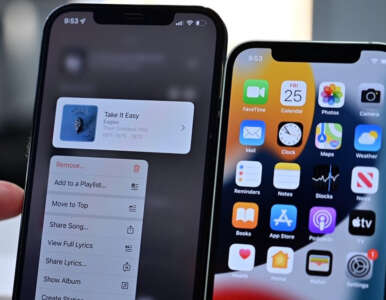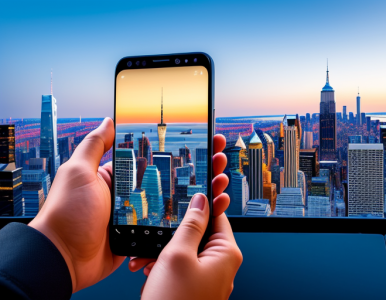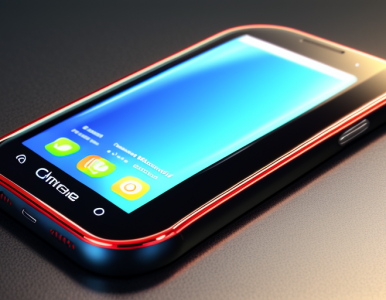When and How Did the First Cellular Phone Come to Life?
The first cellular phone, a groundbreaking invention that revolutionized communication technology, came into existence through a series of innovations and advancements. In the early 1970s, Dr. Martin Cooper, an engineer at Motorola, made history by making the first-ever call from a handheld mobile phone. This event marked the birth of the cellular phone as we know it today.
Cooper’s invention paved the way for the development of cellular phone technology, which relied on the concept of cellular networks. These networks divided regions into smaller areas called cells, each with its own tower that transmitted and received signals. This breakthrough allowed users to stay connected even while on the move, a significant departure from traditional landline telephones.
The impact of the first cellular phone was profound, transforming communication technology and society as a whole. It eliminated the need for physical wires and landline connections, providing people with the freedom to communicate from anywhere. This newfound mobility and accessibility revolutionized the way we connect with one another, enabling instant communication across long distances.
Invention of the Cellular Phone
The invention of the cellular phone marked a significant milestone in the history of communication technology. It revolutionized the way people connect and interact with each other, paving the way for the modern era of mobile communication. The development of the first cellular phone can be attributed to a number of inventors and technological advancements.
One of the key figures in the invention of the cellular phone is Martin Cooper, an engineer at Motorola. In 1973, Cooper made the first ever handheld cellular phone call, using a prototype device known as the Motorola DynaTAC. This groundbreaking moment laid the foundation for the future of mobile communication.
Technological advancements played a crucial role in making the cellular phone a reality. The invention of microprocessors and integrated circuits enabled the miniaturization of electronic components, making it possible to fit the necessary circuitry into a portable device. Additionally, advancements in battery technology allowed for longer battery life, ensuring that the cellular phone could be used for extended periods of time without the need for frequent recharging.
Evolution of Cellular Phone Technology
The evolution of cellular phone technology has been a remarkable journey, starting from its humble beginnings to the sophisticated smartphones we rely on today. This progression has been marked by numerous key milestones and innovations that have revolutionized the way we communicate and interact with the world.
In the early days, cellular phones were bulky and limited in their capabilities. They were primarily used for voice calls and had limited range and battery life. However, as technology advanced, so did the capabilities of cellular phones. One of the key milestones in this evolution was the introduction of text messaging, which allowed users to send short written messages to one another. This feature quickly gained popularity and became a staple of cellular phone communication.
Another significant innovation was the introduction of mobile internet access. This opened up a whole new world of possibilities, allowing users to browse the web, check emails, and access various online services right from their phones. The advent of mobile internet paved the way for the development of smartphones, which combined the functionalities of a cellular phone with those of a personal computer.
Over time, smartphones became more powerful and versatile, offering features such as high-resolution cameras, touchscreens, and access to a wide range of applications. The introduction of app stores revolutionized the way we use our phones, allowing us to customize them with various applications and services tailored to our needs and interests.
Today, smartphones have become an integral part of our daily lives, serving as our primary means of communication, entertainment, and productivity. They have become more than just phones; they are powerful tools that connect us to the world and enable us to navigate our lives with ease and convenience.
In conclusion, the evolution of cellular phone technology has been a fascinating journey of innovation and advancement. From the early days of basic voice calls to the modern smartphones we use today, cellular phones have transformed the way we communicate and interact with the world. With each milestone and innovation, they have become more powerful, versatile, and indispensable in our lives. The future holds even more exciting possibilities, as technology continues to push the boundaries of what is possible.
Introduction of Mobile Networks
The development of mobile networks has played a crucial role in enabling the widespread usage of cellular phones. From the first generation networks to the current 5G technology, mobile networks have evolved significantly, revolutionizing communication and connectivity.
Mobile networks began with the introduction of 1G networks in the 1980s, which provided basic analog voice calls. These networks were limited in terms of coverage and capacity, but they laid the foundation for future advancements. The transition to 2G networks in the 1990s brought digital voice calls and the ability to send text messages, making communication more efficient and reliable.
With the advent of 3G networks in the early 2000s, mobile phones gained the ability to access the internet, paving the way for mobile data services and applications. This opened up a whole new world of possibilities, allowing users to browse the web, send emails, and use various online services on their cellular devices.
4G networks, introduced in the late 2000s, further enhanced mobile data capabilities, providing faster download and upload speeds, as well as improved network capacity. This enabled the rise of streaming services, video calls, and mobile gaming, transforming the way people consume media and interact with each other.
Currently, the world is transitioning to 5G networks, which promise even faster speeds, lower latency, and greater capacity. 5G technology has the potential to revolutionize various industries, such as autonomous vehicles, smart cities, and the Internet of Things (IoT). It will enable seamless connectivity and support advanced applications that require real-time data transmission.
In summary, the development of mobile networks has been instrumental in enabling the widespread use of cellular phones. From the early days of analog voice calls to the current era of 5G technology, mobile networks have continuously evolved, providing faster speeds, improved connectivity, and opening up new possibilities for communication and innovation.
Impact on Communication and Society
Cellular phones have had a transformative impact on communication and society, revolutionizing the way we connect with others and conduct our daily lives. With the advent of cellular phones, personal communication habits have undergone significant changes. Gone are the days of relying solely on landlines or physical letters to communicate with loved ones. Now, we can instantly connect with anyone, anywhere in the world, with just a few taps on our smartphones.
Furthermore, cellular phones have also revolutionized business practices. They have enabled seamless communication between colleagues and clients, regardless of their physical location. With the ability to make calls, send emails, and access the internet on the go, professionals can stay connected and productive no matter where they are. This has paved the way for remote work and flexible working arrangements, allowing individuals to achieve a better work-life balance.
Moreover, the impact of cellular phones extends beyond personal and professional communication. They have also transformed social interactions. With the rise of social media platforms and messaging apps, people can now connect with friends, family, and even strangers from around the world. This has led to the formation of virtual communities and the sharing of ideas and experiences on a global scale. However, it is important to note that while cellular phones have brought about numerous benefits, they have also raised concerns about privacy, digital addiction, and the blurring of boundaries between work and personal life.
Future of Cellular Phone Technology
The future of cellular phone technology holds exciting possibilities and potential advancements that will further revolutionize the way we communicate and interact with our devices. One of the most anticipated developments is the introduction of foldable screens, which will allow for larger display sizes while maintaining the portability of smartphones. These screens can be folded or unfolded, offering users a versatile and immersive visual experience.
Another significant advancement on the horizon is the integration of artificial intelligence (AI) into cellular phones. AI-powered smartphones will be able to understand and adapt to user preferences, making personalized recommendations and providing a more intuitive user experience. This integration will also enable advanced features such as voice assistants, facial recognition, and augmented reality applications.
Furthermore, the emergence of 6G networks is expected to bring unprecedented speed and connectivity to cellular phone technology. With faster download and upload speeds, lower latency, and increased capacity, 6G networks will support a wide range of innovative applications and services. This includes real-time virtual reality, autonomous vehicles, and seamless connectivity in remote areas.
Smartphones and Beyond
The rise of smartphones has revolutionized the world of cellular phones, transforming them into powerful devices that go beyond traditional communication. Smartphones have become the dominant form of cellular phones due to their advanced features and capabilities.
Smartphones offer a wide range of features, allowing users to not only make calls and send messages but also access the internet, take photos and videos, play games, and use various applications. With touchscreens and intuitive interfaces, smartphones have made it easier than ever to navigate through different functions and applications.
Furthermore, smartphones have opened up a world of possibilities for mobile technology. They have become essential tools for productivity, entertainment, and connectivity. With the ability to download and use various applications, smartphones have become personalized devices that cater to individual needs and interests.
Looking ahead, the future of mobile technology holds even more exciting prospects. Foldable screens are already making their way into the market, allowing for larger displays without sacrificing portability. Artificial intelligence integration is also on the horizon, with smartphones becoming smarter and more intuitive in understanding user preferences and behaviors.
Additionally, the emergence of 6G networks is expected to bring even faster internet speeds and enhanced connectivity. This will enable new possibilities for augmented reality, virtual reality, and other immersive technologies on smartphones.
In conclusion, smartphones have transformed the cellular phone industry, offering advanced features and capabilities that go beyond traditional communication. With the potential for future developments such as foldable screens, artificial intelligence integration, and 6G networks, smartphones will continue to shape the future of mobile technology.
Impact of the Cellular Phone
The invention of the cellular phone has had a profound impact on various aspects of society, revolutionizing communication, transforming the business landscape, and even revolutionizing education and healthcare. Let’s take a closer look at how cellular phones have influenced these areas.
One of the most significant impacts of cellular phones is the revolution in communication they have brought about. With instant connectivity and the ability to make calls and send messages from anywhere, cellular phones have broken down geographical barriers and increased global interconnectedness. People can now communicate with each other regardless of their location, leading to increased collaboration, coordination, and the sharing of information.
Cellular phones have also transformed the way businesses operate. With the rise of mobile commerce, companies can now reach customers anytime and anywhere, allowing for greater convenience and accessibility. Additionally, cellular phones have facilitated remote work, enabling employees to stay connected and productive even when they are not physically present in the office. This flexibility has opened up new opportunities for businesses and changed the nature of work.
In the field of education, cellular phones have had a significant impact. They have become powerful learning tools, providing access to a wealth of information and educational resources. Students can now use their cellular phones to research, study, and collaborate with their peers. Furthermore, cellular phones have made distance learning possible, allowing students to access educational content and participate in virtual classrooms from anywhere in the world.
Cellular phones have also revolutionized healthcare. With the advent of mobile health applications and wearable devices, individuals can now monitor their health, track their fitness levels, and receive personalized healthcare recommendations. Cellular phones have made healthcare more accessible, allowing patients to connect with healthcare professionals remotely and access medical information and services.
In conclusion, the impact of the cellular phone on society has been profound. From transforming communication to revolutionizing business, education, and healthcare, cellular phones have become an integral part of our lives. As technology continues to advance, the impact of cellular phones is likely to grow even further, shaping the way we live, work, and interact with the world.
Communication Revolution
The advent of cellular phones has brought about a communication revolution, transforming the way we connect with one another. With the ability to provide instant connectivity, these devices have broken down geographical barriers and facilitated increased global interconnectedness. The impact of cellular phones on communication has been profound, enabling people to stay connected regardless of their location.
Cellular phones have revolutionized the way we communicate by offering convenience and accessibility. In the past, communication was limited to landlines and physical mail, which often involved delays and limitations. However, with the introduction of cellular phones, individuals can now communicate instantly, regardless of their location. Whether it’s a phone call, text message, or video call, cellular phones have made it easier than ever to stay connected with friends, family, and colleagues.
Furthermore, cellular phones have played a significant role in breaking down geographical barriers. In the past, long-distance communication was expensive and often limited to certain regions. However, with cellular phones, individuals can now communicate with anyone around the world, bridging the gap between different cultures and fostering global interconnectedness.
The communication revolution brought about by cellular phones has had far-reaching effects. It has transformed the way we interact with one another, making communication more accessible, efficient, and instantaneous. Whether it’s for personal or professional purposes, cellular phones have become an essential tool in our daily lives, connecting us to the world around us.
Mobile Technology and Business
The advent of cellular phones has had a profound impact on the business landscape, revolutionizing the way companies operate and transforming various aspects of business practices. One of the key areas where cellular phones have made a significant difference is in mobile commerce, also known as m-commerce. With the rise of smartphones, businesses have been able to reach customers directly through mobile apps and websites, enabling seamless transactions and enhancing the overall shopping experience.
Cellular phones have also played a crucial role in enabling remote work, allowing employees to stay connected and productive even when they are not physically present in the office. With the ability to access emails, documents, and collaborate with colleagues on the go, professionals can now work from anywhere, increasing flexibility and work-life balance.
However, along with the opportunities that mobile technology brings, there are also challenges that businesses need to navigate. One of the challenges is ensuring the security of sensitive business data and protecting it from potential cyber threats. As more business operations are conducted through cellular phones, it becomes essential for companies to implement robust security measures to safeguard their information.
In conclusion, cellular phones have transformed the business landscape by enabling mobile commerce, facilitating remote work, and presenting both opportunities and challenges for businesses. As technology continues to advance, it is crucial for companies to adapt and leverage the power of mobile technology to stay competitive in today’s fast-paced business world.
The invention of the cellular phone marked a significant milestone in the history of communication technology. It revolutionized the way people connect and interact with each other, paving the way for a new era of mobile communication. The cellular phone, also known as the mobile phone or cell phone, was first conceptualized in the early 20th century, but it wasn’t until the 1970s that the first practical cellular phone was developed.
The credit for inventing the first cellular phone goes to Martin Cooper, an engineer at Motorola. In 1973, Cooper made the first ever public call from a handheld cellular phone, demonstrating the potential of this groundbreaking technology. The early cellular phones were large and bulky, weighing several pounds, but they laid the foundation for the sleek and portable devices we use today.
The invention of the cellular phone was made possible by advancements in various fields, including electronics, telecommunications, and computer science. It required the development of miniaturized components, such as microchips and transistors, as well as the establishment of mobile networks to support the transmission of voice and data.
Frequently Asked Questions
- 1. When was the first cellular phone invented?
The first cellular phone was invented in 1973 by Martin Cooper, a researcher at Motorola. It was a groundbreaking invention that revolutionized communication technology.
- 2. How did the cellular phone technology evolve over time?
Cellular phone technology has come a long way since its inception. It has evolved from bulky devices with limited functionality to sleek smartphones with advanced features such as internet connectivity, high-resolution cameras, and artificial intelligence integration.
- 3. What role did mobile networks play in the widespread use of cellular phones?
Mobile networks played a crucial role in enabling widespread cellular phone usage. The development of mobile networks, from the first generation to the current 5G technology, provided the infrastructure for seamless communication and data transfer.
- 4. How have cellular phones impacted communication and society?
The impact of cellular phones on communication and society has been immense. They have revolutionized personal communication habits, allowing instant connectivity and breaking down geographical barriers. They have also transformed business practices and social interactions.
- 5. What does the future hold for cellular phone technology?
The future of cellular phone technology looks promising. Advancements such as foldable screens, artificial intelligence integration, and the emergence of 6G networks are expected to shape the next generation of cellular phones.
- 6. How have smartphones become dominant in the cellular phone market?
Smartphones have become the dominant form of cellular phones due to their advanced features and capabilities. They offer a wide range of functionalities, including internet browsing, multimedia entertainment, and app-based services.
- 7. What impact have cellular phones had on various aspects of society?
Cellular phones have had a profound impact on various aspects of society. They have revolutionized communication, transformed the business landscape, and opened up new opportunities in education and healthcare.
- 8. How have cellular phones revolutionized communication?
Cellular phones have revolutionized communication by providing instant connectivity, allowing people to stay connected regardless of their location. They have broken down geographical barriers and increased global interconnectedness.
- 9. What role do cellular phones play in the business world?
Cellular phones play a significant role in the business world. They facilitate mobile commerce, enable remote work, and provide access to real-time information, enhancing productivity and efficiency.






